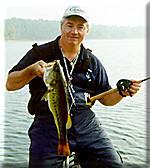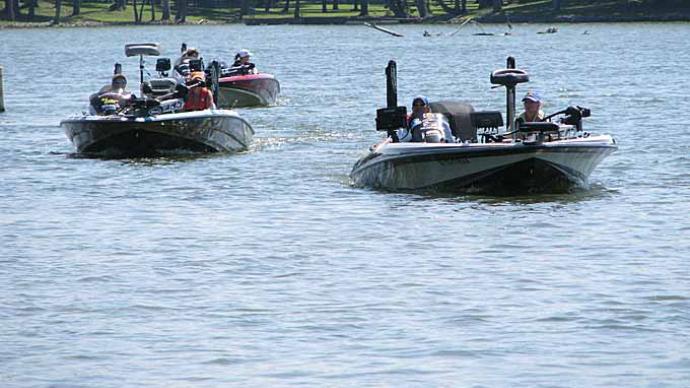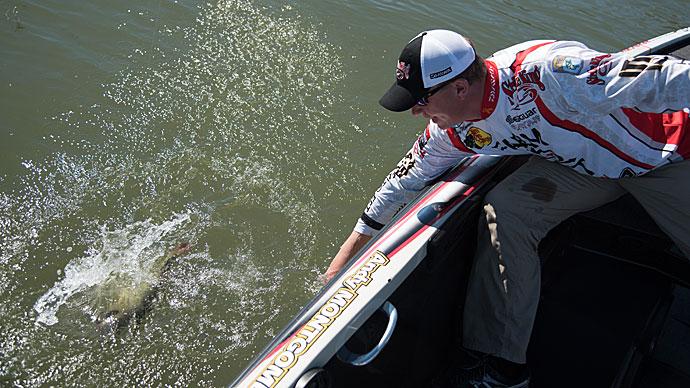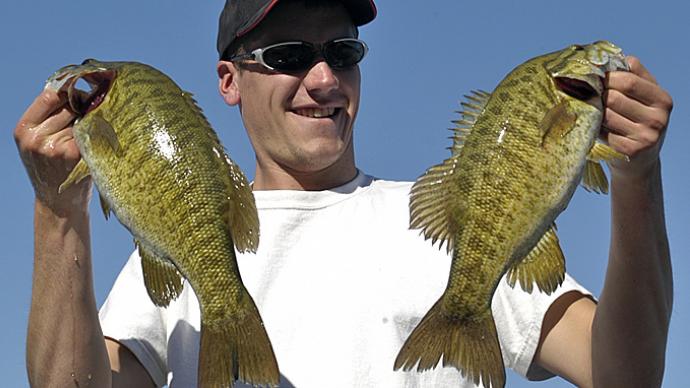
Many people would like to compete on the tournament trails and do very well, even winning large sums of money. What about you? The first thing you have to ask yourself is, "do I have what it takes"? I will try to outline below some of the roadblocks and requirements to answer your questions.
Well, to start with, you need angling know-how. A good understanding of the lifestyle and habitat of the fish you want to catch, including feeding and mating habits. Then, you have to think like a fish! These are just a few prerequisites you will need before "stepping up to the plate."
I began fishing in London, England, at the age of six on the banks of the River Thames. Ten years later, I was competing in local tournaments or matches against some of the best in the country. Using the oldest cliché of all, "I was hooked." By the age of twenty, I was fishing in championship competitions in different lakes, rivers, and streams.
When I arrived in the United States thirteen years ago, I fished European style and kept catching these unusual fish called largemouth bass (they are not native to Europe, however some have been found in Italy and Spain). Five years ago, I joined a local Long Island bass club, and it was there that I laid down the foundation for what I do today. I began watching the club's senior members catch bass consistently. I learned and used their styles, combining them with my own, and formed a set of techniques that I use today.
Sponsorship is a great way to start once you have established a track record in tournaments at a local level. When selecting a sponsor, use their product because if you like it and it works for you, you will have no trouble whatsoever promoting its benefits on the road. If you have no confidence in a product, you will never successfully convince others to use it. Always contact the company's marketing division and get a name to whom you can write a letter, attaching your resume and relevant information about your fishing capabilities.
Most sponsorship, in the beginning, will be in the form of product. Once you have established a professional track record, dollars become part of the bargaining process. This can be a lump sum per annum or a "salary" based on sales and seminar or trade show appearances. A fact worth remembering is that there are more sponsorship dollars in fishing today than golf and tennis combined!
While on the subject of dollars, this sport, like so many others, is not inexpensive. A typical tour of four one-week tournaments will cost you $2400.00 to enter. Next comes food, lodging, fuel, and equipment, plus "on the road" vehicle and vessel repairs. The amounts can vary, but a general rule of thumb is between $6000.00 and $8000.00 per annum for this one tournament trail. One-day tournaments are cheaper but still require overnight accommodations, entry fees, and previously mentioned items. Depending on location, a weekend tournament (typically Saturday and Sunday) will average between $300.00 and $600.00.
Travel and vacation time play an essential role in your decision to turn pro. You will need six weeks of vacation per year if you hold down a full-time job. That can be tough, and you will need an understanding boss. Every weekend, you will be on the water, fishing, or practicing. While fishing with the legendary angler Woo Daves, "there is no substitute for time on the water." How right he was.
When you begin fishing from the back of another angler's boat, you must have the basic skills to catch fish from various locations regardless of who controls the boat. The "back seat" angler who does their homework has won many tournaments.
If all that was not enough, you should be prepared to address large crowds and speak to the press or television crews who will come to you for comment and information. The spectator and weekend angler is the bread and butter of this $70 billion per annum industry. Without them, there would be no tournaments, no new lures, rods, reels, or equipment, simply because there would be no one to buy the goods or watch the shows on the weekend! Some touring anglers can sometimes become aloof when dealing with the public. Their success is usually short-lived, and they pay the price for forgetting their beginnings. When dealing with the press, they can be your best friend or your worst enemy. I prefer the first of the two choices. Always make time for them, tell them what they need to know, and make sure you use the name of your sponsors in your conversations with them.
Charles is a pro angler who fishes the B.A.S.S. Invitational circuit, the REDMAN Northeastern trail, and the FOXWOODS trail. He is sponsored by Bullet Weights, G.Loomis, Gamakatsu, Lake Hawk, Chevy Trucks, Hawg-ly Lures, Uncle Josh, Ike-Con Fishing Tackle, Snap-Set Spinnerbaits, Map-Trap, Stamina Components, and Power Troll Batteries.




